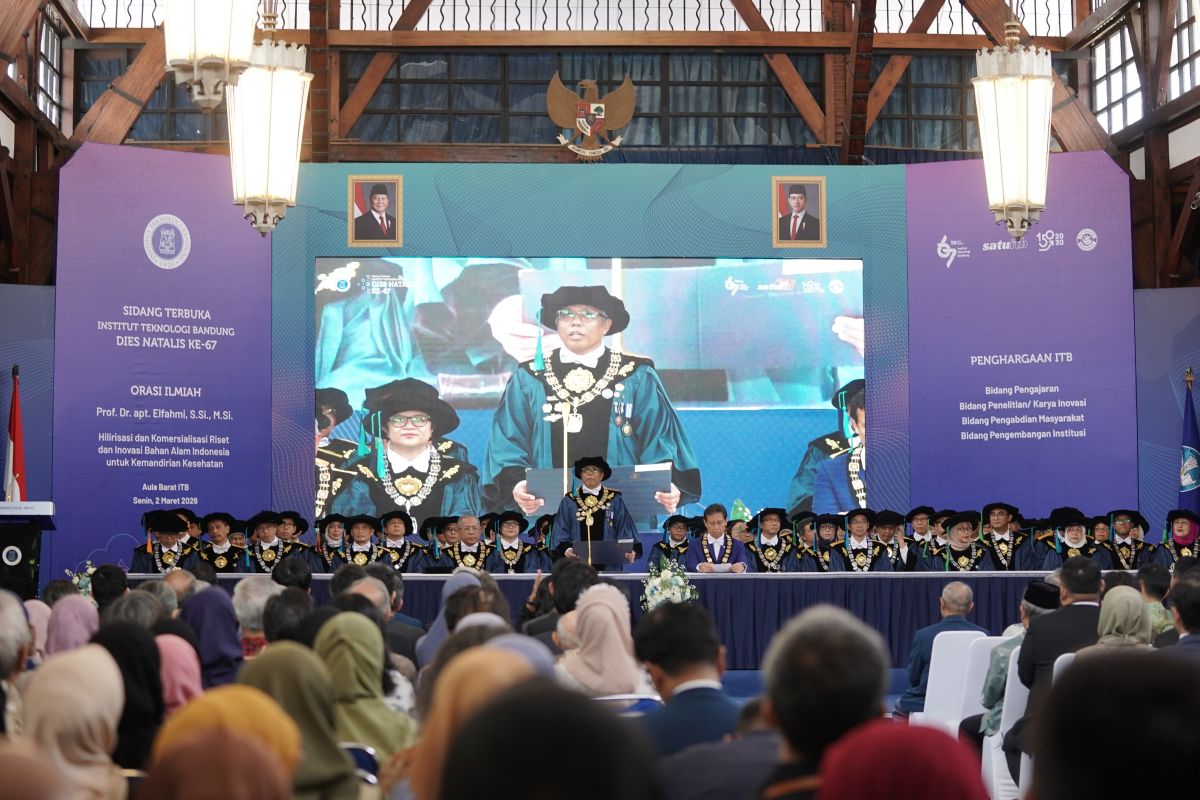STEI ITB Hosts Seminar on AI Applications in Smart Cities
By M. Naufal Hafizh, S.S.
Editor M. Naufal Hafizh, S.S.

BANDUNG, itb.ac.id – The School of Electrical Engineering and Informatics at Institut Teknologi Bandung (SEEI ITB) organized a seminar titled "Milestones Shaping AI: Ethical Considerations and AI in Smart Cities & Innovation" at the Science and Techno Park (STP) ITB on Jalan Ganesha, Bandung City, on Tuesday (27/2/2024). This event was conducted in collaboration with Yandex Research and the Smart City and Community Innovation Center (SCCIC) ITB.
The seminar featured prominent figures in the field of artificial intelligence (AI), including the Director of AI Development at Yandex, Alexander Krainov; VP Strategy at Yandex Search, Alexander Popovskiy; ITB Lecturer and SCCIC Researcher, Dr. Fadhil Hidayat, S.T., M.T.; and the Director of Application Control at the Ministry of Communication and Information (Kominfo), Teguh Arifiadi, S.H., M.H. The speakers addressed various crucial aspects of AI development and application, particularly its relevance to Indonesia.
Dr. Fadhil Hidayat noted that generative AI is currently the latest trend in AI development. He highlighted Yandex as a successful example in Russia, attributing its achievements to several factors. This success has served as a catalyst for Indonesians to create similar innovations.
"We've recognized the need for a deeper understanding of AI. We shouldn't merely be users," he said.
However, Dr. Hidayat acknowledged the challenges ahead, particularly in ethics and regulations. Ethical considerations in AI applications encompass principles and values crucial for responsible development and usage. It is crucial to ensure that AI is employed responsibly and does not pose harm to its users.
Regarding AI application in Indonesia, Teguh Arifiadi, S.H., M.H., discussed the existing regulations aimed at facilitating AI adoption, alongside the challenges that need to be addressed. Hence, there is a need to develop AI systems that adhere to ethical standards as well as responsibility and safeguard data privacy.

Dr. Fadhil Hidayat emphasized that AI has the potential to enhance the quality of life in smart cities. He highlighted that its implementation could involve simple yet effective measures.
"AI-based services don't necessarily need to be autonomous. For instance, hospital scheduling utilizes AI, and in vehicles, AI-based mirrors can detect drowsiness. This allows for simple yet impactful responses without the need for manual intervention," he explained.
Similarly, he noted that applying AI to city services can start with simple measures but still have a substantial impact on smart city services. However, looking ahead, this cannot be divorced from risks, associated costs, regulations, and the preparedness of cities to operate complex systems. "Another risk lies in AI potentially giving incorrect responses. Challenges like these underscore the necessity for robust AI measurement," he emphasized.
He expressed hope for a follow-up to the seminar. "Our aim is undoubtedly to master this technology and develop our own products to advance Indonesia's smart initiatives," he stated.
Reporter: M. Naufal Hafizh
Translator: Hanifa Juliana (Urban and Regional Planning, 2020)
Editor: Anggi Nurdiani (Management, 2024)

.jpeg)
.jpg)
.jpg)


